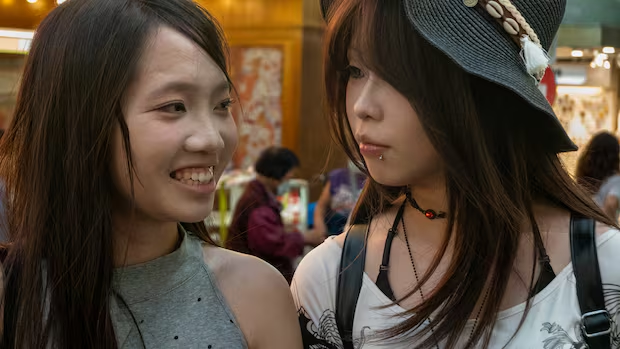Amid the intensifying rivalry between China and the U.S., many Taiwanese have turned to podcaster Mindy Huang as a trusted voice to guide them through complex global events.
Huang, 36, engages with more than 80,000 listeners each week on Mindi World News, a two-hour forum where geopolitics and her island’s complicated relationship with China get discussed.
She says that engagement has given her some insight into the mindset of her audience.
“I think most Taiwanese, we see ourselves as Taiwanese. We see ourselves as an independent country different from China,” she told CBC News in Taipei.
“But … I think people below 18 — the youth — are willing to get closer to China.”
China views Taiwan as a breakaway province and has vowed to reclaim the democratically-governed island by force if necessary.
Yet Huang and others say that pro-China messaging on social media is resonating with Taiwan’s youth more than the potential threat China poses.
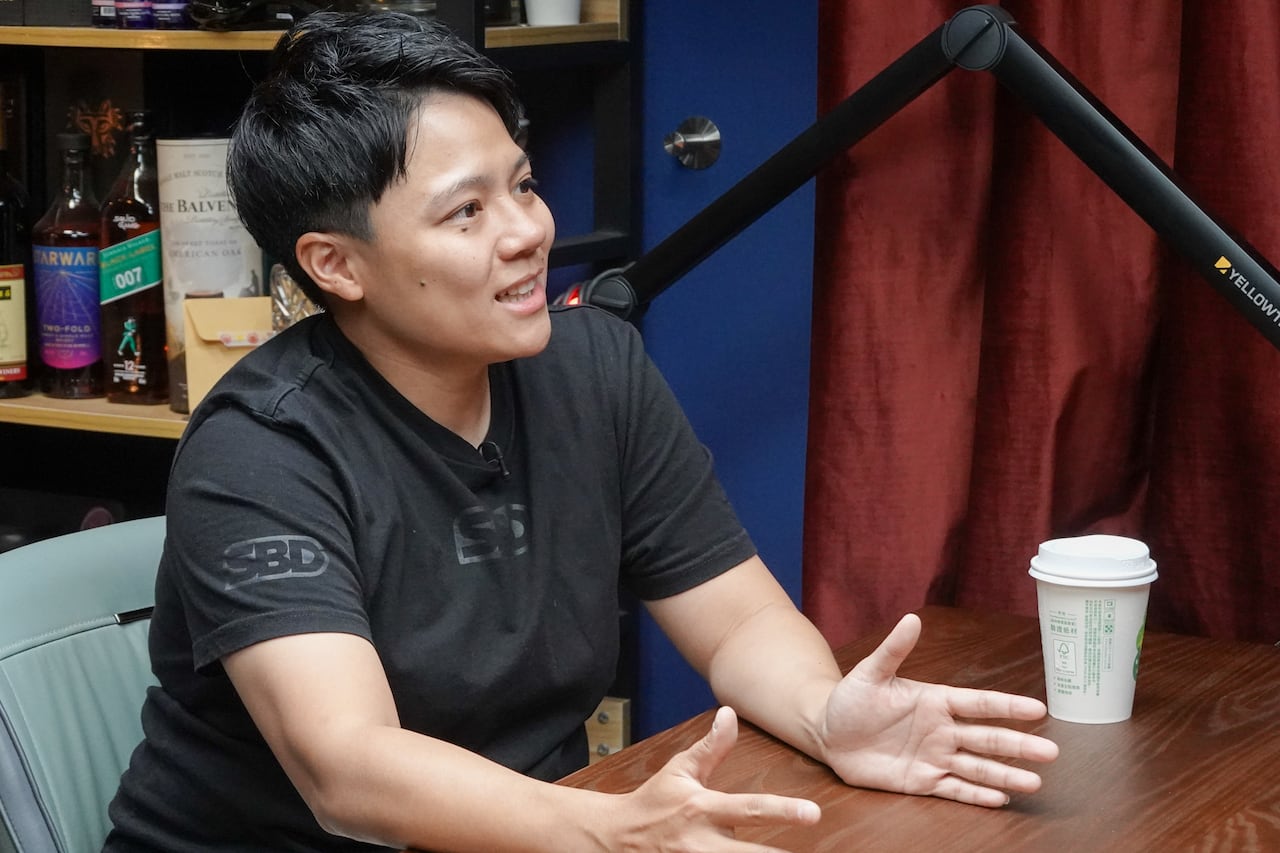
Internal divisions
Most countries in the world, including Canada, recognize the People’s Republic of China (PRC) and adhere to a “One China” policy but Canada has never acknowledged China’s sovereignty over Taiwan.
Within Taiwan itself, the ruling Democratic Progressive Party (DPP) is more independence-leaning but has largely avoided potentially disruptive moves in that direction. Beijing views the party’s leaders, including Taiwan’s current President Lai Ching-te, as “separatists.”
The opposition Kuomintang, or KMT, is seen as being more open to dialogue with China and has traditionally skewed to an older demographic.
The internal divisions are not new but have become increasingly relevant, particularly with younger Taiwanese.
With a trade war between the U.S. and China intensifying ahead of a Nov. 1 tariff deadline, there’s growing concern Beijing will use Taiwan as a bargaining chip.
Taiwan is facing almost daily military provocations from China, with the latter’s naval ships and aircraft operating near the island. China’s military forces are also undertaking an immense buildup of missiles and other armaments on the mainland and have even reportedly staged dress rehearsals for storming Taiwan’s presidential building.
Taiwan, meanwhile, is attempting to leverage its impressive economic success as the maker of the majority of the world’s most advanced computing chips into more political clout in order to push back against the Chinese influence and enhance its international diplomacy.
In this regard, winning the hearts and minds of younger generations is a key part of the “resilience” Taiwan’s President Lai says his government is trying to grow and foster within its population.
Generational divide
But Huang says many younger people don’t see China as a threat in the same way that people as little as a decade older do.
“They see a lot of good things [about China] through social media,” Huang said.
“They wonder why we have to be enemies [with] each other. But then if I said, ‘Oh, don’t forget or don’t ignore the hostility from China,’ they would say, no, I cannot sense any of that.”
“And so I think social media definitely creates a beautiful image for teenagers of China.”
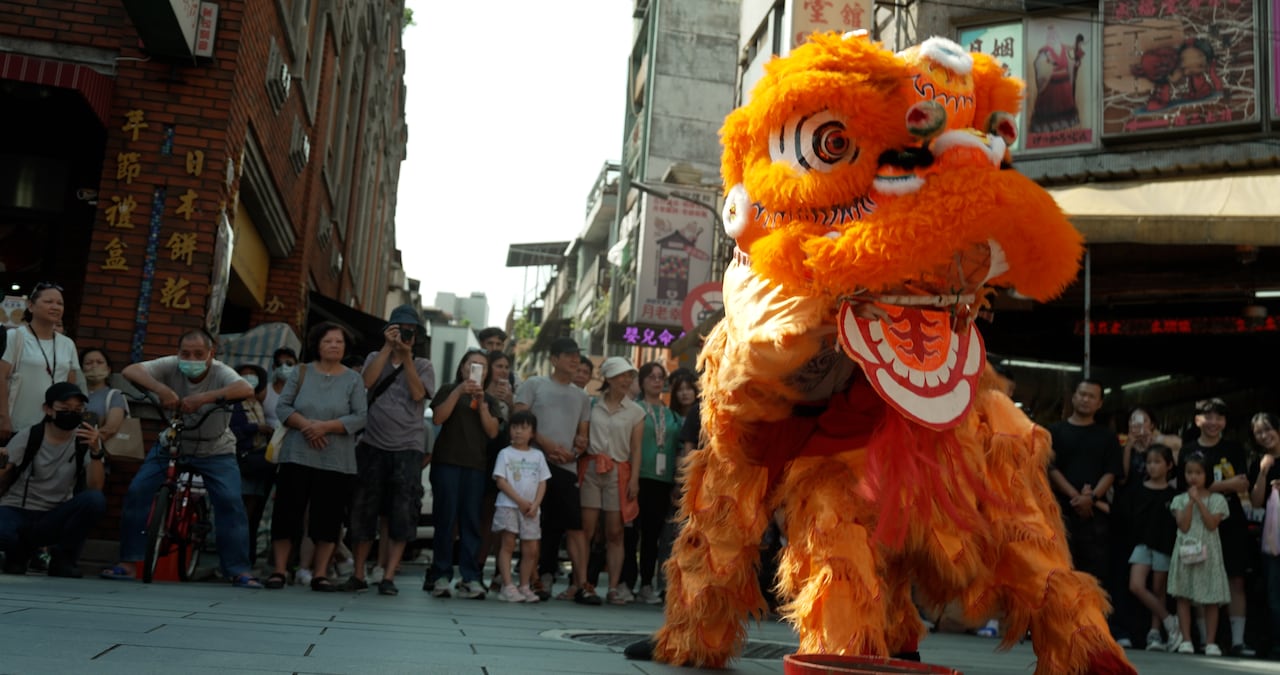
The impact of China’s so-called “grey zone” efforts — or hostile activities that stop short of actual force — have been studied extensively, particularly with regard to Chinese-owned TikTok.
One study of TikTok users in Taiwan from earlier in 2025 concluded that a majority tended to blame Taiwan’s political parties, rather than China, for the increase in hostilities across the Taiwan Strait. It also suggested that support for pro-Beijing narratives were significantly higher among TikTok users than among those who did not use the social media platform.
Taipei political scientist Ronan Fu says China’s efforts to flood the social media space with anti-democracy messages and to soften support for independence have had an effect and could have worrying implications as the island attempts to build up its military defences.
“They [young people] probably are not going to voluntarily participate in a war if a war were to happen,” said Fu, who is an assistant research fellow at Academia Sinica, Taiwan’s top research institution.
“Perhaps you can attribute this kind of denialism to a sense of ‘threat fatigue’ — because the myth of a threat is there, and it has been there for a very long time, but it hasn’t been materialized.”
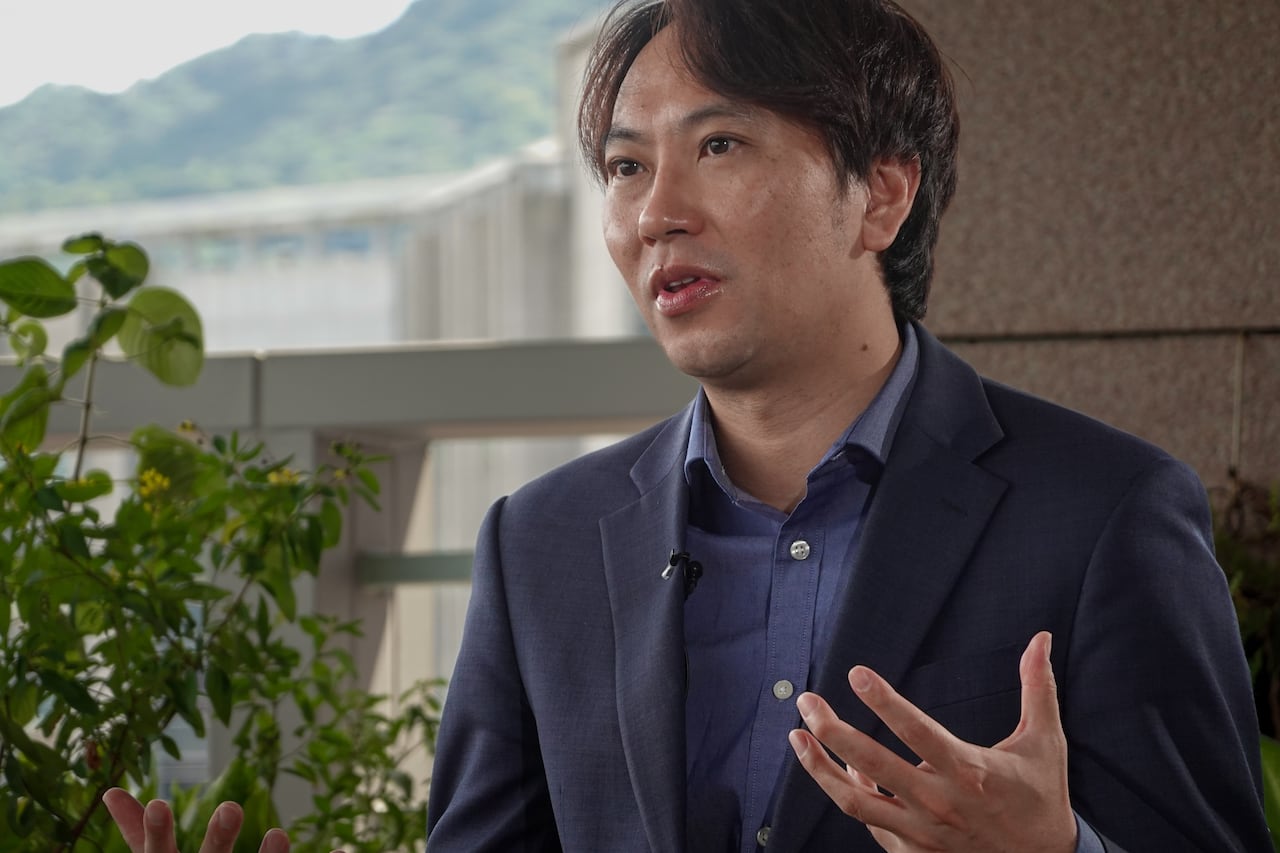
China and Taiwan have been engaged in a Cold War over the island’s status ever since 1949, when the Mao Zedong’s Communist forces defeated those of the Republic of China, who then fled to the island.
Views from the youth
While in Taipei, CBC News spoke to teenagers and college-age students in Ximending, a pedestrian zone filled with clothing stores and eateries popular with young people.
“I don’t think this is something to worry about,” said Lauren Chung, 20, a university student.
“If mainland China really does [invade Taiwan], it will cause tension to go up between the two sides, so they probably won’t.”
Her friend Amelia Xu said she also isn’t especially concerned about what would happen to Taiwan’s democratic nature and freedoms should the island eventually be taken over.
“After Hong Kong and Macau were taken over [by China], people there still enjoyed freedom of speech. So I don’t think freedom of speech is something that worries me,” she said.
Hong Kong, a former British colony, was returned to Chinese rule in 1997 but maintained a high level of autonomy until Beijing passed sweeping changes that restricted the candidates who could run for office.
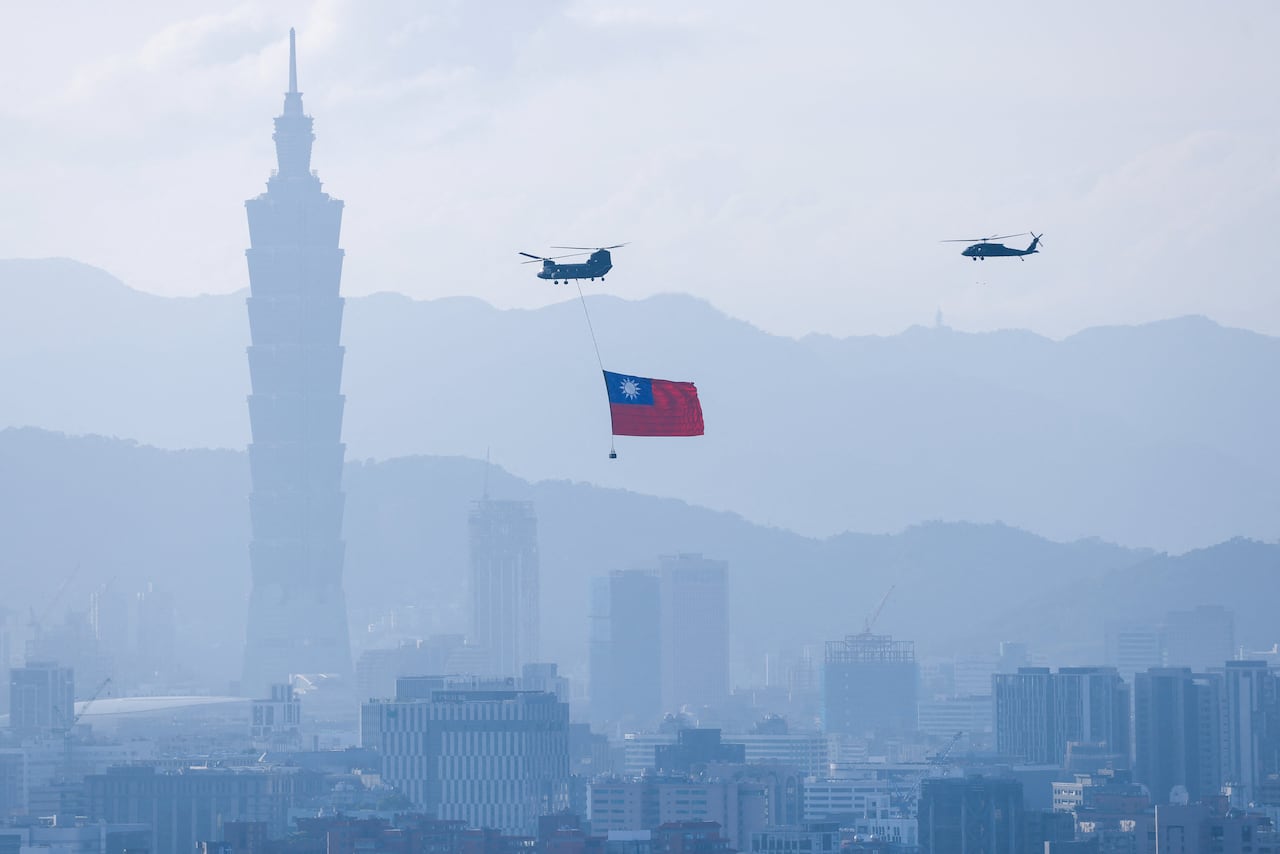
Opposition voices in Hong Kong have now largely been silenced in the wake of widespread and often violent pro-democracy protests in 2019 and 2020. Most of the leaders of those protests either fled Hong Kong or were jailed.
In another part of Taipei, near Computer Street, an electronics sales hub, Amber Tsai, 21, said she feels less threatened by China than she used to.
“It looks like the international society is now paying more attention to Taiwan,” she said, referring to its tech success.
“After more and more people get to know Taiwan, I feel that China’s ambition towards Taiwan is not as strong. So, I’m not as concerned as I used to be.”
Social media influence
In an interview with CBC News, Taiwan’s Vice-President Hsiao Bi-khim underscored that China’s social media efforts have been challenging to counter.
“There’s … tremendous awareness that cognitive warfare is a problem and disinformation has been used as a tool to disrupt the cohesion of our society as a democracy,” she said.
“We are also working with other democracies to find best practices in countering such influence operations conducted by authoritarian states.”
She said part of that involves media literacy campaigns as well as “calling out” China.
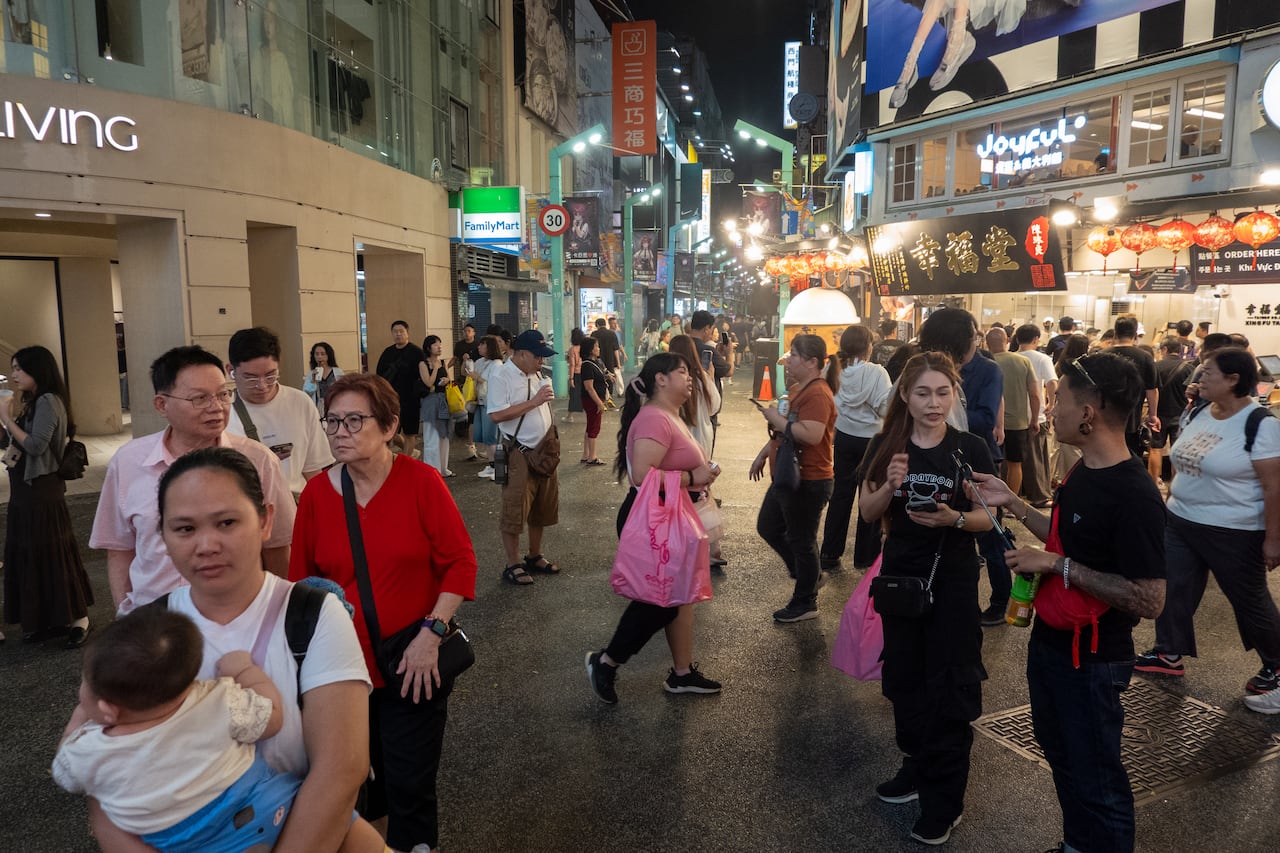
But Huang, the podcaster, says Taiwan’s government is facing an overpowering adversary as it tries to keep up with the Chinese messaging.
She says young people on the island are generally much less concerned about geopolitics and China than they are about finding jobs, saving money and buying a home.
“For them, they only see the struggles during their daily lives. So before solving those struggles or problems, it’s so hard for them to realize, ‘Oh your country’s sovereignty matters,’” said Huang.
Still, she says she expresses her own view as much as she can — that an attack from China is likely.
“For me, I always [tell] my audience to be prepared. I believe what [Chinese President] Xi Jinping said: it is deeply in his mind that he’s going to do that.”
Source link



